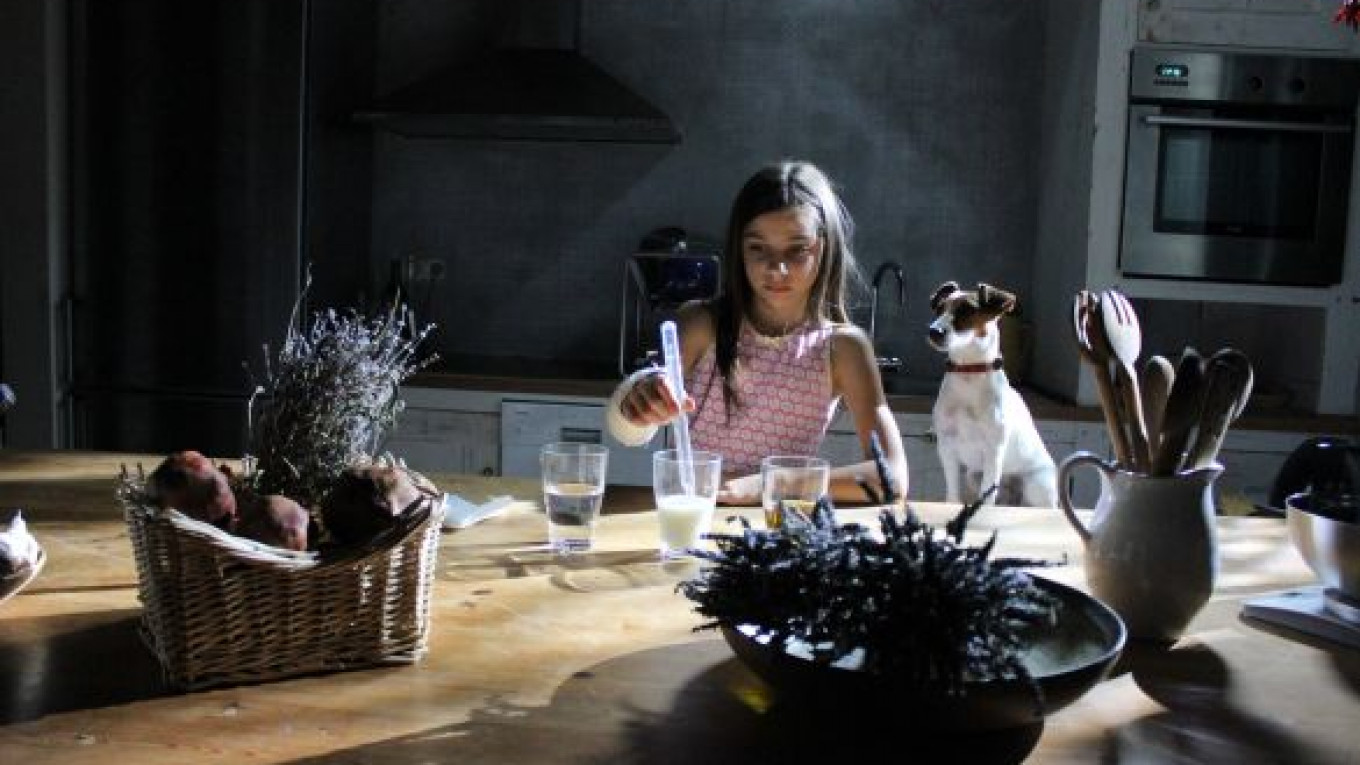Moscow International Film Festival (MIFF) is celebrating its 35th edition this year, taking place from June 20 to 29, with likely high-profile guests, including Brad Pitt and now-Russian citizen Gerard Depardieu.
The festival is among the oldest of its kind the world. The first edition was in 1935, with its jury headed by Sergei Eisenstein, but it did not become a fully annual event until 1995, despite increasing in regularity until then.
This year, the jury features skilled filmmakers from countries as diverse as Iran, France and South Korea, with competitors hailing from an equally impressive range of countries.
The premier of Pitt’s new film, World War Z, introduced the first day of the festival at Oktyabr Theater as it opened on Thursday.
Depardieu is expected to appear as the festival draws to a close at the screening of Rasputin, in which he plays the “Mad Monk” himself, scheduled for June 29.
There are three competitions to be held across the main body of the festival: the more general ‘film’ category, documentary film, and short film, as well as a selection of Hollywood classics being shown throughout.
Gareth Jones’ exploration of a relationship through trauma, “Delight” opens the main competition, in which 16 different directors are competing.
Also showing will be Danish director Alex van Warmerdam’s “Borgman,” which recently screened at Cannes, and Nicholas Winding Refn’s crime thriller “Only God Forgives,” starring the ever-popular Ryan Gosling.
Winners will receive a Saint George inspired 24-karat golden trophy — a classic Russian symbol, also forming the competition’s logo — designed by jewelry house Carrera y Carrera.
Outside the competition there are numerous other film programs. The festival is screening eight different movies about Stalingrad alone.
There will also be a Korean cinema showcase and some other intricately-titled categories: “films around the world,” “almost all of Bertolucci” and the rough but promising “sex, food, culture and death” genre.
A popular element of the festival is the “traditional Russian film program,” from June 21 to 28, during which 25 full-length films will be shown.
The Russian film program will take place in The House of Cinema (of the Filmmakers’ Union) and is an ideal opportunity to taste some homegrown Russian projects.
One of the program’s pearls is the 2013 film “Thirst,” from director Dmitry Turin. Thirst was based on a novel by Andrei Gelasimov that goes by the same name. He also wrote the script.
“The most important theme is the desire to live again,” Turin said.
Turin hopes that the European spectators will see beyond the standard picture of Russia and Russians through his film.
“Russia has been shown very negatively in films that have become famous in the past few years. I would like to show Russian people as human beings,” Turin said. “I admit that we have problems, everybody in the world does, but we are good people actually, deep inside.”
The “universal story” uses all-Russian elements to present itself to the viewer:
An initially talented boy is left with nothing and joins the army. He gets caught in tank-fire in Chechnya and when he gets back home he seeks consolation in vodka.
“Our main character has all possibilities to hate the world, because he is unlucky, he is terribly unlucky. … But the moment he stops hating the world, the world stops hating him,” Gelasimov revealed proudly.
He believes viewers may even find comfort in the film.
Gelamisov’s novel is written in the first person. To visualize this transition that the main character makes, how he gets “out of his prison,” the artists used Point of View shots.
“Dmitry, as a director, shows this in the film through the character’s eyes. As the character slowly gets out of his prison, after 15 minutes, we will see the character’s face for the first time.”
The festival will also host a special program dedicated to the memory of recently deceased director Alexei Balabanov. Five of his films are to be screened, including “Brat,” his most famous.
Gennady Sidorov’s adaptation of the controversial “Romance/Novel With Cocaine” — the translation of the novel’s title was deliberately ambiguous — is to be shown. It was unfinished upon the directors death in 2011.
MIFF screenings are being held from June 20 to 29, primarily at Oktyabr Theater, Novy Arbat 24, Metro Arbatskaya. For more information on other festival venues visit moscowfilmfestival.ru
Contact the author at artsreporter@imedia.ru
A Message from The Moscow Times:
Dear readers,
We are facing unprecedented challenges. Russia's Prosecutor General's Office has designated The Moscow Times as an "undesirable" organization, criminalizing our work and putting our staff at risk of prosecution. This follows our earlier unjust labeling as a "foreign agent."
These actions are direct attempts to silence independent journalism in Russia. The authorities claim our work "discredits the decisions of the Russian leadership." We see things differently: we strive to provide accurate, unbiased reporting on Russia.
We, the journalists of The Moscow Times, refuse to be silenced. But to continue our work, we need your help.
Your support, no matter how small, makes a world of difference. If you can, please support us monthly starting from just $2. It's quick to set up, and every contribution makes a significant impact.
By supporting The Moscow Times, you're defending open, independent journalism in the face of repression. Thank you for standing with us.
Remind me later.






